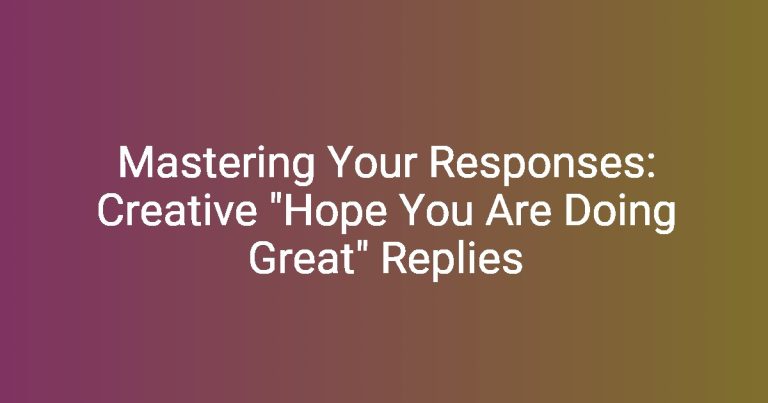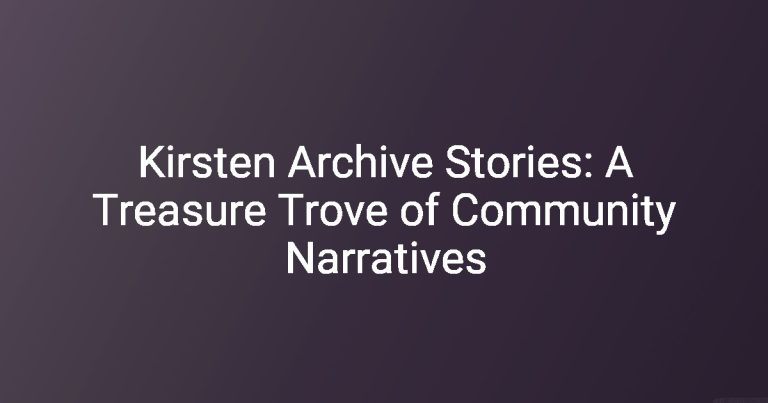The significance of reminders in our daily lives cannot be overstated. Whether it’s a gentle nudge to remember a friend’s birthday or an alert about a crucial work deadline, reminders help us navigate the complexities of our schedules. Interestingly, the act of giving and receiving reminders often creates an emotional exchange between the individuals involved. This brings us to the phrase “thanks for the reminding,” which acts not just as a polite response, but also as an expression of gratitude that reinforces relationships and encourages positive interactions.
The Importance of Reminders
Why Reminders Matter
In our fast-paced world, reminders play a pivotal role in helping us maintain schedules and meet deadlines. They allow us to manage tasks effectively, reducing the stress and anxiety that come with forgetting important commitments. By enhancing our productivity and efficiency, reminders serve as crucial tools that support our daily routines.
Types of Reminders
Reminders can be categorized into three main types:
1. Personal reminders: These include significant dates like birthdays and anniversaries that help us stay connected with our loved ones.
2. Professional reminders: Important for workplace dynamics, these involve meeting alerts and project deadlines that keep us accountable.
3. Health-related reminders: Serving our well-being, these reminders help us remember to take medications, schedule appointments, and attend check-ups.
The Psychology Behind Reminding
The Role of Memory
Memory is a fascinating aspect of human cognition. It allows us to store and retrieve information, but as we age, our memory function can decline, making reminders even more vital. By understanding how memory operates, we can appreciate the importance of timely reminders and the role they play in keeping us organized.
Emotional Responses to Reminders
Receiving reminders elicits varied emotional responses based on their context and tone. A gentle reminder can be viewed positively, while a harshly worded one may lead to defensiveness. Understanding these nuances helps in maintaining healthy interactions. It’s essential to be mindful of how we phrase reminders, ensuring they remain supportive rather than punitive. This concept ties back to our appreciation for those who remind us, encapsulated in the phrase “thanks for the reminding.”
The Power of Gratitude in Communication
Expressing Thanks Effectively
Expressing gratitude for reminders is more than just politeness; it enhances interpersonal relationships. Saying “thank you” acknowledges the effort put in by others to help us stay organized. There are various ways to express this sentiment, whether verbally, through a text, or in a handwritten note. The context is crucial; for example, a casual “thanks for the reminding” is effective among friends, while a more formal acknowledgment may be needed in professional settings.
The Benefits of Expressing Gratitude
Displaying gratitude comes with numerous benefits. Not only does it strengthen relationships, but it also produces positive psychological effects on both the giver and the receiver. Studies have shown that expressing appreciation can enhance workplace morale and foster a supportive environment.
How to Give Reminders Thoughtfully
Timing and Delivery
Timing is everything when giving reminders. A well-timed reminder can boost productivity and reduce anxiety for the recipient. Depending on the situation, different methods can be utilized—such as a quick text message, an email, or an in-person conversation—to deliver reminders effectively.
Crafting Effective Reminders
When crafting reminders, it’s crucial to use clear and concise language. Personalizing the reminder based on the recipient’s needs can significantly enhance its effectiveness. For example, instead of saying, “Don’t forget your appointment,” you might say, “Just a quick reminder about your 3 PM appointment today!” This personalized touch makes the reminder feel more considerate.
When to Be Careful with Reminders
Avoiding Over-Reliance
While reminders are beneficial, there is the potential for excessive reminders to create dependency. It’s essential to balance reminders with personal responsibility so that individuals develop their ability to remember important tasks and deadlines.
Navigating Sensitivities
Not everyone appreciates reminders in the same way. Understanding the sensitivities of others is vital, especially in personal and professional settings. Some people may feel insulted by reminders, viewing them as a lack of trust in their capabilities to manage their tasks. Being aware of personal circumstances that may affect how reminders are perceived can help mitigate misunderstandings.
Summary Table
| Type of Reminder | Examples | Significance |
|---|---|---|
| Personal Reminders | Birthdays, Anniversaries | Enhances relationships |
| Professional Reminders | Meetings, Deadlines | Increases accountability |
| Health-related Reminders | Medications, Appointments | Promotes overall well-being |
Conclusion
In summary, reminders are a critical component of our lives, helping us to manage our time, reduce stress, and enhance productivity. The simple phrase “thanks for the reminding” encapsulates the appreciation we should show to those who help us stay organized. By fostering a culture of appreciation and effective communication, we can enhance our relationships both personally and professionally, making reminders a tool for enhancement rather than obligation.
FAQs
1. What does “thanks for the reminding” mean?
“Thanks for the reminding” is a phrase used to express gratitude towards someone who has reminded you of an important task or event.
2. Why should I express gratitude for reminders?
Expressing gratitude strengthens relationships and enhances interpersonal communication.
3. How can I ensure my reminders are well-received?
Use positive language, consider the timing, and personalize the reminder based on the recipient’s needs.
4. Are reminders helpful for productivity?
Yes, reminders help to maintain schedules, meet deadlines, and reduce anxiety about forgetting important tasks.
5. What are some effective ways to give reminders?
Effective ways include sending texts, emails, or reminding someone in person at an appropriate time.
6. Can too many reminders be detrimental?
Yes, an over-reliance on reminders can hinder personal accountability and the ability to remember tasks independently.
7. How can I make reminders more personal?
Personalize reminders by integrating details specific to the recipient, such as their name or context.
8. What should I do if someone feels offended by my reminder?
Be respectful, listen to their feelings, and adjust your approach when offering reminders in the future.
9. Are there apps that can help with reminders?
Yes, many apps like Todoist and Google Keep help manage reminders effectively.
10. How does gratitude impact mental health?
Gratitude has been linked to improved mental health, providing benefits such as reduced stress and enhanced happiness.



